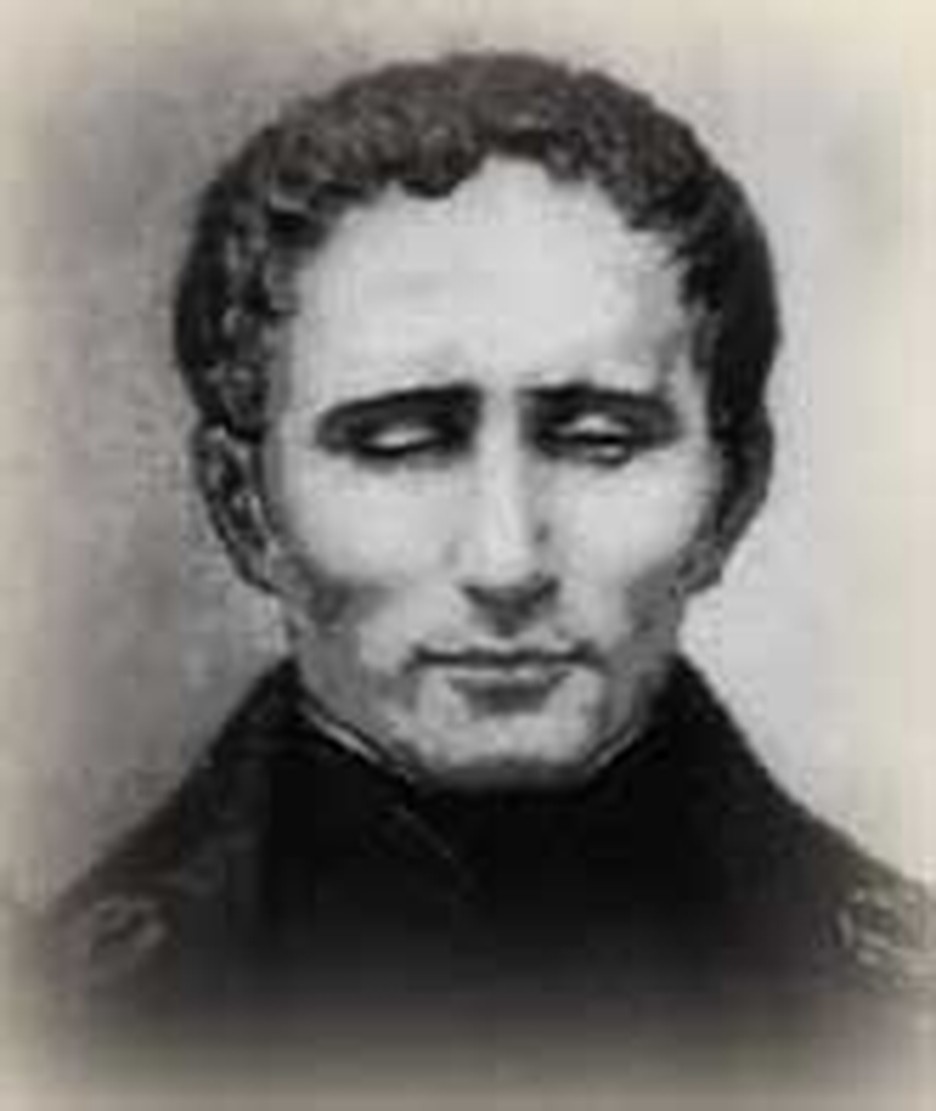
At four o'clock in the morning on this day, January 4, 1809, in Coupvray, France, a local midwife eased tiny Louis Braille into the world. Louis was the fourth child of his mother, Monique, and his father Simon, a leather worker. The pair formed a sturdy middle-class couple, devout and prosperous. But the boy appeared frail, so they arranged to have him baptized right away.
Louis quickly showed himself to be a bright-eyed child, prying into everything. The early death that had been feared for him did not happen. However, another disaster struck. Three-year-old Louis had been warned not to play with his father's tools. But temptation was strong. One day, when no one was looking, he took up a sharp knife and tried to cut a piece of leather. The blade slipped, gouging one of his eyes. The wound became dangerously infected. Then the infection spread to his good eye. Louis was blind.
The town's old priest died. Father Jacques Palluy took his place. He saw the potential of young Louis and began to teach him. Afterward, Palluy arranged for a newly appointed schoolmaster to instruct Louis. The good priest later got Louis admitted to the Royal Institution for Blind Youth.
At the institute, Louis proved to be an apt pupil. In addition to his regular subjects, he learned to play the piano. Playing religious music on the organ would become one of the joys of his later life.
Captain Barbier introduced a system of raised dots to the Royal Institute. It had serious flaws. Young Louis was still just a boy, but he set out to solve the problems of Barbier's system. The captain was reluctant to accept suggestions from a boy, so Louis began to experiment at night. At fifteen, he created the world's first really good system for blind reading. At nineteen years of age, he developed a Braille system of writing music. At twenty, he was a teacher at his own school.
In writing of his own system, Louis never sought glory, happy to remind his readers how much he owed to Captain Barbier. This, despite the fact that Barbier fought Louis' system and tried to get his own method made the official medium of instruction. Louis showed true saintliness. His frustration must have been great, because teachers, afraid of losing their jobs, also resisted the improved system.
Deeply modest, Louis hid his many acts of kindness and charity. These were often sacrificial. For instance, he gave up a position he loved, playing organ for a church, simply because another blind person needed it more than he did.
Louis developed tuberculosis in young manhood. As he lay dying he said, "God was pleased to hold before my eyes the dazzling splendors of eternal hope. After that, doesn't it seem that nothing more could keep me bound to the earth?" He asked for final communion about midday on January 6, 1852. After three and a half hours of agony late that afternoon, he died at seven-thirty in the evening.
Bibliography:
- Feldman, Anthony. Scientists & Inventors. New York: Facts on File, 1979; p. 140.
- Roblin, Jean. The Reading Fingers. Life of Louis Braille, 1809-1852. American Foundation for the Blind, 1955.
- --- Louis Braille. Royal National Institute for the Blind London: England.
- Various internet and encyclopedia articles.
Last updated June, 2007.








